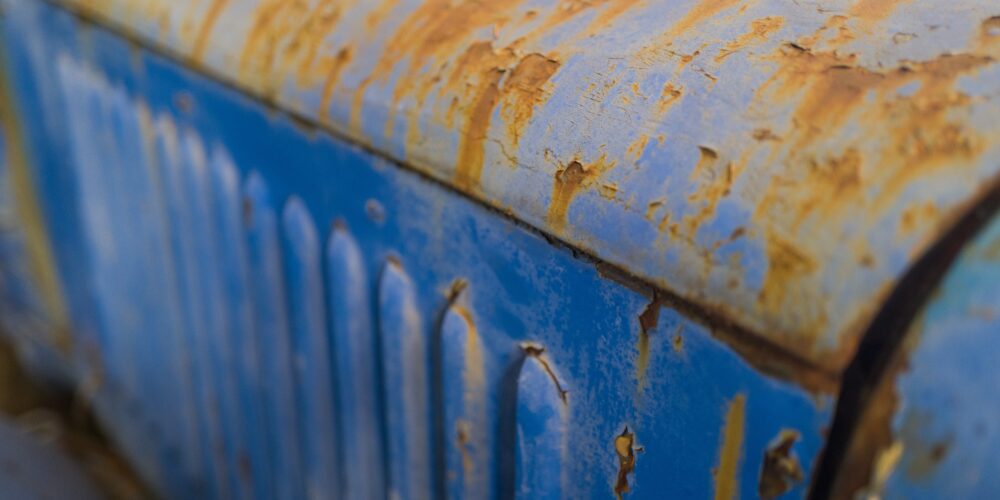Rust is an often overlooked issue with our vehicles but it’s one of the most dreaded problems you can face. A rusted spot not only looks bad, but without repair or due attention, it could even lead to issues with the structural integrity and function of your vehicle. While some parts of your vehicle are more prone to rust than others, and while rust can have a more detrimental effect in some areas of the vehicle, knowing how to look for and prevent rust on your vehicle will ensure that your car stays road-safe for as long as possible. We’ve put together this guide to preventing rust on your vehicle to help you get started.
When Will My Car Start To Rust?
When it comes to your vehicle and when it will start to rust, the reality is that there’s just no set timeline for you to follow. Wear and tear can affect cars differently depending on how much you drive, where you drive, the area you live, the temperature, the weather and more. Older models are more likely to experience rust than newer models with rust-proofing materials, but this isn’t a guarantee.
Rust can be caused by a number of different factors, including:
- Age – The age of your vehicle will often have an effect on the level of rust you’ll see, not only because older models tend not to have rust-proofing, but because wear and tear can build up over time. The metalwork on your vehicle is exposed to the elements over the years and those years can add up, ultimately leading to rust.
- The Climate – Where you live or drive may also have an effect on how quickly you might start to see rust on your vehicle. If you live in cold, wet areas, rust is more likely. Salt on the road and increased moisture all add up to a perfect storm of corrosion and oxidisation. Hot temperatures can also create issues, and increase corrosion rates.
- Materials – The materials that your car is made from will always have an effect on how fast they can and will rust. Older vehicles are typically made with metals that aren’t rust-proof or resistant and aren’t treated to prevent rust either. For this reason, older models are typically more prone to rust.
- Driving Style – Where you live, where you drive and your style of driving can all have an effect on the speed at which your car may rust. If you typically drive through puddles or on muddy dirt tracks, your car is more likely to rust than those who stick to the roads.
What Types of Rust Are There?
Different types of rust on your vehicle can cause different amounts of damage and knowing which your car is suffering from can help you determine the work required to repair it. The three main types of rust include:
- Surface Rust – Surface rust is rust that only affects the surface level of your vehicle, though it can go deeper and spread further if not dealt with. Generally, these can start and will be found around any bumps or nicks on the paint or body panels.
- Scale Rust – If surface rust is left untreated, it can result in scale rust, which is what happens when the rust spreads further.
- Penetrating Rust – Penetrating rust is any rust that delves deeper into the material and often results in irreparable damage that needs replacement.
How Can You Avoid Rust On Your Vehicle?
If you are worried about rust on your vehicle, there are a number of things you can do to help prevent rust from not only forming but from spreading if it does:
- Wash Regularly – Keeping on top of the cleanliness of your car can help you prevent rust from forming, as long as you clean everything properly. Rinsing off salt, dirt, debris and more can take away potential toxins that may initially trigger the problem.
- Dry Thoroughly – Once you’ve cleaned your vehicle, it’s important that you make sure you dry it off as best you can. This can take off any excess water from the body of your vehicle and stop it from sitting and causing rust problems over time.
- Use Wax – After cleaning, using wax adds a protective layer to the paintwork on your car. It can keep moisture away from weaker spots on the paint and ultimately protect from and prevent rust over time.
- Oil Hinges etc. – The hinges, joints and other hard-to-reach areas can also accumulate moisture and are most prone to rust if not looked after properly. Ensuring they stay oiled will prevent rust from forming or causing damage if the hinge dries out too much.
If you’ve spotted rust on your vehicle, our team are on hand to help. Our mechanics are well-versed in bodywork repairs, ensuring your vehicle stays in good, safe and drivable condition for as long as possible. Simply get in touch with a member of our team for more information or to book your vehicle in at your local Service4Service garage, today.

